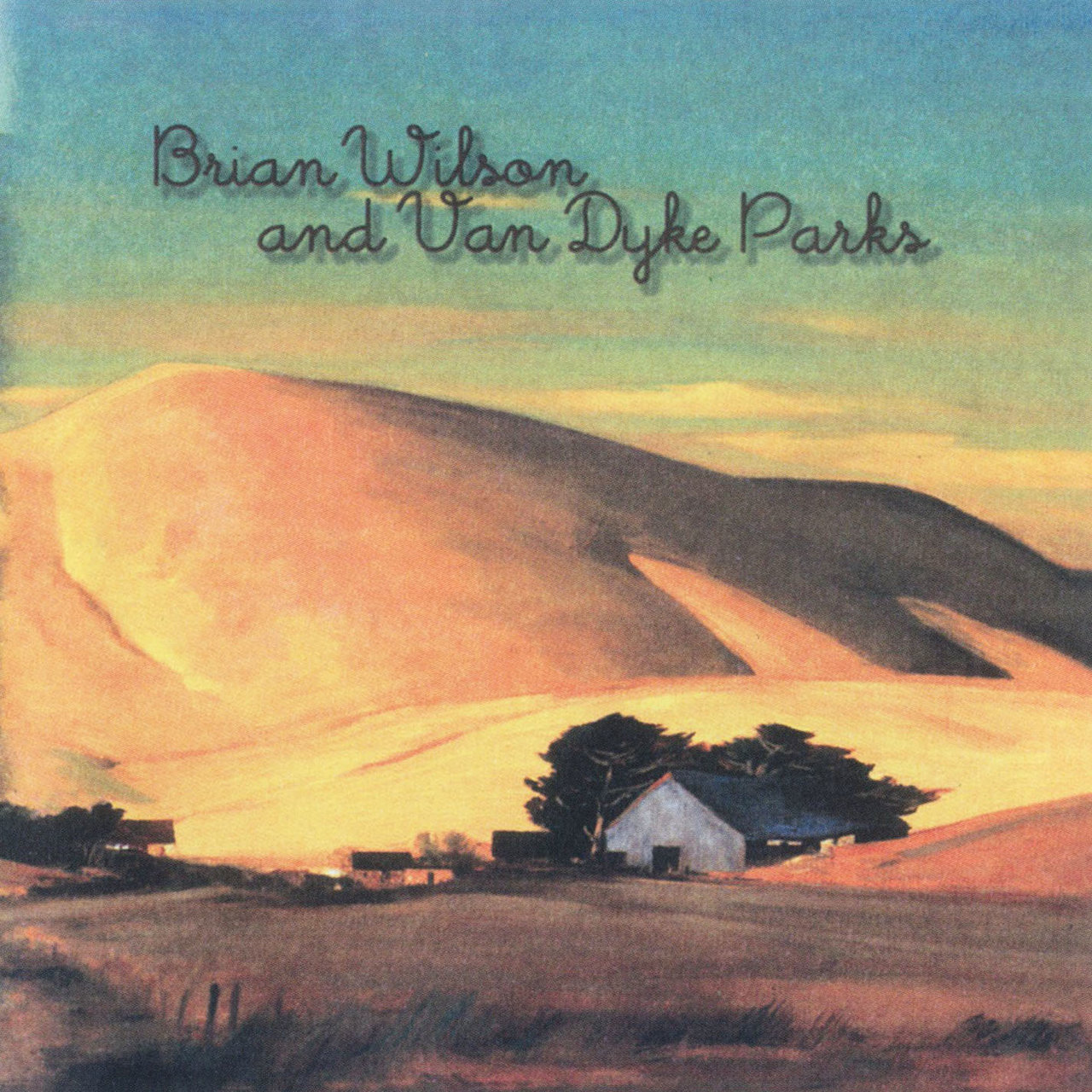Brian Wilson and Van Dyke Parks' 'Orange Crate Art' "Hold(s) Back Time"
From the archives: Brian Wilson and Van Dyke Parks release a misty eyed, warm hearted song cycle of California nostalgia
(This review originally appeared in Issue 5/6, Winter 1995/96. A 25th Anniversary double vinyl LP issued by Omnivore with new liner notes and three previously unissued outtakes is currently available—see clickthrough at page bottom).
When I was a child, I had a middle-aged second cousin Sophie who lived in far away California. She came to visit one cold New York winter in the late 1950s, bearing crates of tissue wrapped oranges, and jellies and jams from a place with a magical name: Knotts Berry Farm. The golden California sun had somehow made the oranges more orange than the ones we’d get from Florida, I noted.
Even cousin Sophie seemed transformed by her time in California: while most of my first-generation immigrant relatives had that austere, crabby Eastern European disposition (you’d be short too if half your family had been wiped out in the Holocaust), cousin Sophie seemed, well, sunny.
Then there were the television images of California: the Mouseketeers, Disneyland, Hollywood and Vine, The Rosebowl Tournament of Roses Parade, the Academy Awards—even the Hollywood Ranch Market, which Steve Allen used to use as a prop on his television show, reinforced the images of abundance. In the early 60s the Beach Boys tied the image into a neat, bright package and rode the California wave around the world.
By the time I got to LA in the late 70s, most of that world was already gone, though a sleepy, funky corner outpost remained on the ocean in Venice where I settled (when the searchlight-equipped police helicopters weren’t circling overhead, that is).
When I hightailed it back east in 1986, whatever remained had all but disappeared, smothered by suburbs, sewage, Prop 13, automobiles, air pollution, too many people, and those pastel-towered mini marts on every corner.
This Brian Wilson/Van Dyke Parks project “Hold(s) Back Time,” as one song is called, returning the listener to those magical, clear skied, sun soaked days, in a misty eyed, warm hearted song cycle of California nostalgia.
It’s the California of a pristine Anaheim of rolling orange groves surrounded by snow covered mountains—the California Van Dyke Parks touched on briefly on his 1968 classic Song Cycle (Warner Brothers WS 1727) in songs like “Palm Desert” and “Vine Street” (written by Randy Newman), a California Parks never knew either (he grew up elsewhere). It may never have really existed except in the hearts of outsiders, but it’s sure fun to relive again in these songs.
The music is pure Parks-ian, with ingenious, sliding minor key cascading melodies set off by swaying palm tree, tropical sounding orchestrations. Grand in scope, but warm hearted and comforting in demeanor, the musical feel is pre-rock and roll, with sweeping, curvaceous tango gestures and a childlike innocence.
Wilson handles all of the vocals, sounding gratifyingly supple, especially in the upper registers, where amazingly, he’s given nothing away to time, or his years of devastating personal problems. His self-harmonizing positively soars, giving Parks’ songs the authentic, warm sunny readings they demand.
While this is no audiophile spectacular, with crunchy drums and a rather flat, airless and uninvolving digital sounding soundstage, there’s good focus, plenty of deep bass, and sparkling highs. It’s too bad the overall sonic feel is Digital with a capital “D”—anything but warm and inviting. And if it ain’t digital, it sure sounds it!
The last track, an instrumental, is a rare Gershwin tune found in a cardboard box in 1965 when Warner Music took over the Gershwin musical estate. It’s lushly orchestrated and provides a nice capper to a magical set, which only a dickhead won’t like.
Far better sounding is the warm, warm, warm soundtrack to the documentary I Just Wasn’t Made For These Times produced by Don Was and Brian Wilson (MCAD 11270) which features remakes of Wilson classics like “This Whole World,” “Caroline No,” “Do It Again” with Carnie and Wendy Wilson, and the cosmic “‘Til I Die.”
And worth searching for in the used bins is 1970’s Sunflower (Brother/Reprise RS 6382) which on the back cover includes the following technical note: “The songs on this record were recorded in true stereophonic sound; they are not 16 monophonic signals placed somewhere between right and left speakers blended together with echo, but rather total stereo capturing the ambiance of the room and the sound in perspective as heard naturally by the ear. Although more difficult to perfect, this type of recording is far more satisfying to hear, as will be demonstrated upon playing this album.” Right arm!











































.png)








